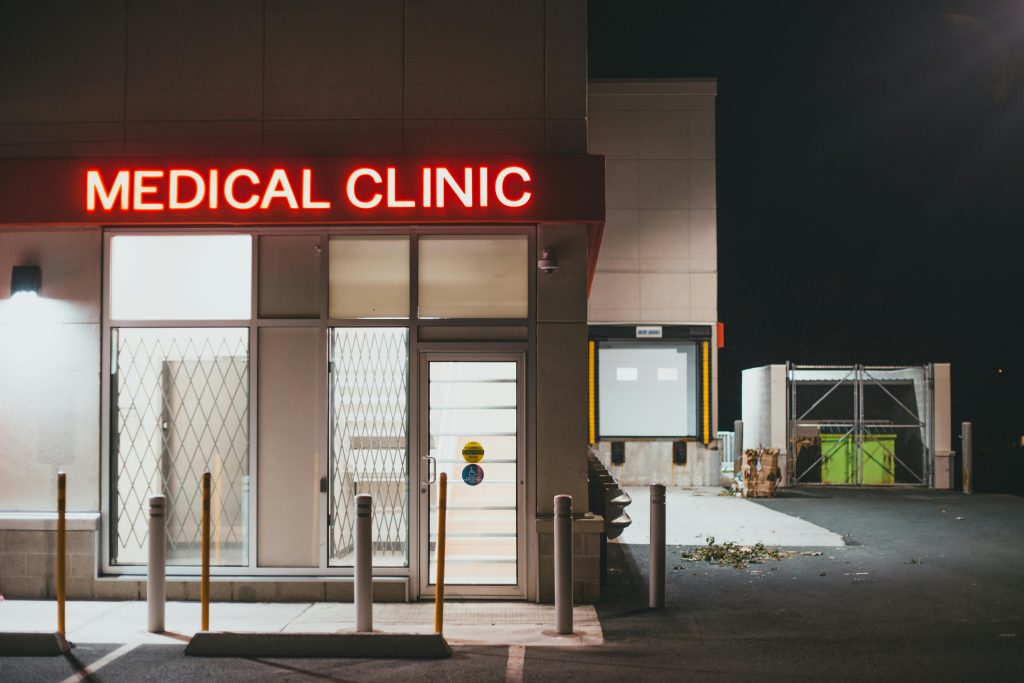
In today’s fast-paced work environment, emergencies can arise unexpectedly, requiring employees to take immediate time off. Whether it’s a personal health crisis, a family emergency, or an unforeseen urgent situation, knowing how to properly request emergency leave is crucial. This comprehensive guide will walk you through the process of writing an effective emergency leave letter, provide useful templates, and offer samples to help you navigate this challenging situation.
Understanding Emergency Leave
What Constitutes an Emergency Leave?
An emergency leave is a type of unplanned absence from work due to sudden, urgent circumstances that require immediate attention. Common reasons for emergency leave include:
- Medical emergencies (personal or family)
- Accidents or injuries
- Natural disasters
- Family crises
- Unexpected legal matters
The Importance of Proper Communication
When faced with an emergency, clear and prompt communication with your employer is essential. A well-written emergency leave letter or application serves several purposes:
- It informs your employer about your situation
- It provides a formal record of your absence
- It demonstrates professionalism even in challenging times
- It helps in managing workload and responsibilities during your absence
How to Write an Emergency Leave Letter
Key Elements of an Emergency Leave Application
When crafting your emergency leave request, include the following elements:
- Salutation
- Reason for Leave
- Duration of absence
- Contact information
- Work arrangement details (if applicable)
- Expression of gratitude
- Closing and signature
Step-by-Step Guide to Writing an Emergency Leave Letter
1. Start with a Clear Subject Line
Begin your email or letter with a subject line that clearly states your purpose, such as “Emergency Leave Request – [Your Name]” or “Urgent: Medical Emergency Leave Application.”
2. Use a Professional Salutation
Address your immediate supervisor or the appropriate person in your organization:
“Dear [Supervisor’s Name],” or “Dear HR Manager,”
3. State the Purpose of Your Letter
Immediately explain that you are writing to request emergency leave:
“I am writing to inform you that I need to take emergency leave due to [brief reason].”
4. Provide Necessary Details
Offer a concise explanation of the emergency situation. While you don’t need to disclose every detail, provide enough information to justify the urgency of your request:
“I have just received news that my father has been admitted to the hospital with a severe heart condition. I need to travel immediately to be with my family and assist in his care.”
5. Specify the Duration of Your Leave
If possible, indicate how long you expect to be away from work:
“I anticipate needing to be away from work for approximately [number of days]. I will keep you updated on any changes to this timeline.”
6. Outline Work Arrangements
If applicable, briefly mention how your work responsibilities will be managed during your absence:
“I have informed my team about the situation and have delegated my ongoing projects to [colleague’s name]. All critical deadlines will be met.”
7. Provide Contact Information
Let your employer know how they can reach you if necessary:
“While I may not be immediately available, I can be reached on my mobile at [your number] or via email at [your email address] for any urgent matters.”
8. Express Gratitude
Thank your employer for their understanding and support:
“I appreciate your understanding and support during this difficult time. Thank you for your consideration of my emergency leave request.”
9. Close Professionally
End your letter with a professional closing:
“Sincerely,
[Your Full Name]”
𝐑𝐞𝐚𝐝 𝐔𝐧𝐝𝐞𝐫𝐬𝐭𝐚𝐧𝐝𝐢𝐧𝐠 𝐁𝐞𝐫𝐞𝐚𝐯𝐞𝐦𝐞𝐧𝐭 𝐋𝐞𝐚𝐯𝐞: 𝐀 𝐂𝐨𝐦𝐩𝐫𝐞𝐡𝐞𝐧𝐬𝐢𝐯𝐞 𝐆𝐮𝐢𝐝𝐞 𝐟𝐨𝐫 𝐄𝐦𝐩𝐥𝐨𝐲𝐞𝐞𝐬
Emergency Leave Letter Templates
Template 1: Medical Emergency Leave
textSubject: Medical Emergency Leave Request - [Your Name]
Dear [Supervisor's Name],
I am writing to inform you that I need to take emergency leave due to a sudden medical condition that requires immediate attention. I have been advised by my doctor to undergo urgent treatment starting today.
I anticipate needing [number of days] off work to receive treatment and recover. I will provide a medical certificate upon my return to work.
[Colleague's name] has been briefed on my current projects and will handle any urgent matters in my absence. I can be reached on my mobile at [your number] if absolutely necessary, but please understand that my responses may be delayed.
Thank you for your understanding and support during this challenging time.
Sincerely,
[Your Full Name]
Template 2: Family Emergency Leave
textSubject: Emergency Leave Application - Family Crisis
Dear [HR Manager's Name],
I am writing to request emergency leave starting immediately due to a family crisis. My sister has been in a serious car accident and is currently in critical condition at [Hospital Name].
At this point, I am unsure how long I will need to be away, but I estimate it may be up to [number of days]. I will keep you updated on the situation and my expected return date.
I have informed my team leader, and we have made arrangements to cover my responsibilities during my absence. For any urgent work-related matters, please contact [colleague's name] at [their contact information].
I greatly appreciate your understanding and support during this difficult time.
Sincerely,
[Your Full Name]
Sample Emergency Leave Letters
Sample 1: Personal Medical Emergency
textSubject: Urgent: Medical Emergency Leave - John Doe
Dear Mr. Smith,
I am writing to inform you that I need to take emergency leave effective immediately due to a sudden medical condition. Late last night, I experienced severe abdominal pain and was admitted to City Hospital for suspected appendicitis.
I am scheduled for emergency surgery this afternoon and will likely need to remain in the hospital for 2-3 days. Following that, my doctor has advised a week of rest at home. Therefore, I anticipate being absent from work for approximately 10 working days.
I have briefed Sarah Johnson on my current projects, and she has agreed to oversee them during my absence. All critical deadlines will be met, and I have prepared detailed notes to facilitate a smooth workflow.
While I will be focusing on my recovery, I can be reached via email at john.doe@email.com for any absolutely urgent matters. I will provide a medical certificate upon my return to work.
Thank you for your understanding and support during this unexpected situation. I appreciate your consideration of my emergency leave request.
Sincerely,
John Doe
Sample 2: Family Emergency
textSubject: Emergency Leave Request - Family Situation - Jane Smith
Dear Ms. Johnson,
I am writing to request emergency leave starting today due to an urgent family situation. I have just received news that my elderly mother has suffered a stroke and has been admitted to Mercy Hospital in critical condition.
As her primary caregiver, I need to travel immediately to be with her and make critical medical decisions. At this point, I am unsure of the exact duration of my absence, but I anticipate needing at least 5 working days off. I will keep you updated on the situation and provide a more definite timeline as soon as possible.
I have informed my team about the emergency, and we have implemented our contingency plan. Mike Davis will be taking over my immediate responsibilities, and I have provided him with all necessary information to ensure smooth operations in my absence.
For any urgent matters, I can be reached on my mobile at (555) 123-4567, though please understand that my responses may be delayed due to the circumstances.
I deeply appreciate your understanding and support during this challenging time. Thank you for considering my emergency leave request.
Sincerely,
Jane Smith
Conclusion
Emergencies are, by nature, unexpected and often stressful. However, handling them professionally in the workplace can make a significant difference in maintaining good relationships with your employer and colleagues. By following the guidelines provided in this blog, you can craft an effective emergency leave letter that communicates your needs clearly and respectfully.
Remember, the key elements of a good emergency leave application include promptness, clarity, and professionalism. Always strive to provide as much information as possible about your situation and the expected duration of your absence. Additionally, try to offer solutions for managing your work responsibilities during your leave.
While employers generally understand that emergencies happen, it’s important to use emergency leave judiciously and only for genuinely urgent situations. By doing so, you maintain your credibility and ensure that when true emergencies arise, your requests are taken seriously.
Lastly, always follow up with any required documentation, such as medical certificates, upon your return to work. This helps validate your emergency leave and maintains a clear record for both you and your employer.
By mastering the art of writing an effective emergency leave letter, you can navigate these challenging situations with confidence and professionalism, ensuring that both your personal needs and work responsibilities are appropriately managed.
